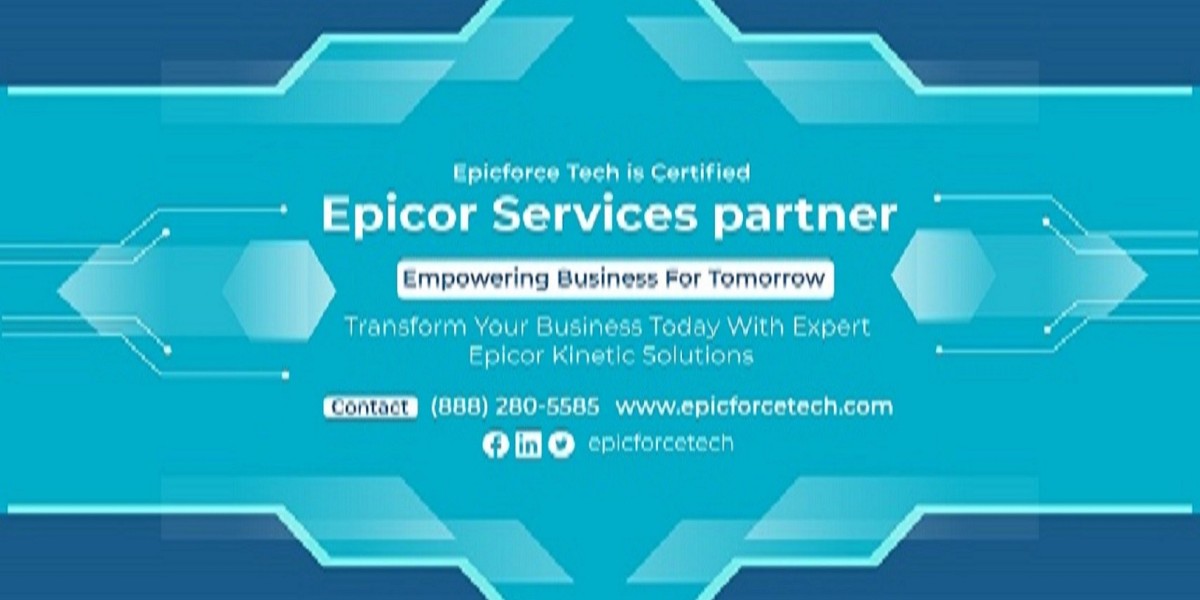Introduction: Why Data Cleanup Is Critical to ERP Success
One of the most overlooked yet vital steps in preparing for an Epicor® consulting engagement is data cleanup. While the software configuration, business process design, and integrations often take center stage, the truth is this: poor data can derail even the most well-executed ERP implementations.
Dirty, incomplete, or inconsistent data doesn’t just create technical problems it leads to inaccurate reporting, user frustration, and costly rework post-go-live. Investing in data quality upfront helps you get the most out of your Epicor® system and avoid delays, budget overruns, and compliance risks.
At Epicforce Tech, we’ve guided numerous clients through ERP transformations and know from experience that successful projects start with strong data foundations. In this guide, we’ll walk you through the most important data cleanup tasks you should complete before engaging with an Epicor consulting team.
Why Pre-Project Data Cleanup Matters
Before you begin working with Epicor consultants, your internal team should understand the critical role data plays in every phase of an ERP project. Clean, standardized, and validated data allows consultants to:
Migrate records faster and with fewer errors
Configure workflows based on accurate process flows
Build reliable reports and dashboards
Reduce time spent on rework or issue resolution
Deliver a smoother, more efficient implementation
More importantly, data cleanup sets your users up for long-term success. When users trust the system, they’re more likely to adopt it fully.
Common Data Problems in Legacy Systems
Many companies preparing for an ERP upgrade or reimplementation have accumulated years (or decades) of messy data in their legacy systems. Common issues include:
Duplicate customer or vendor records
Outdated SKUs or obsolete inventory
Inconsistent naming conventions
Missing required fields (e.g., tax codes, addresses, contacts)
Misaligned chart of accounts
Incorrect unit of measure (UOM) settings
Open transactions with no recent activity
Unused or undefined custom fields
Epicor consulting engagements can address these issues—but it’s far more efficient to resolve them before the project starts.
Top Data Cleanup Tasks Before an Epicor Consulting Project
Below are the key areas where your team should focus its cleanup efforts ahead of time. This not only streamlines your ERP implementation but improves the quality and trustworthiness of your business data overall.
1. Customer and Vendor Master Cleanup
A bloated or duplicated customer/vendor master can lead to invoice errors, compliance issues, and confusion in reporting.
What to do:
Remove inactive accounts with no recent transactions
Consolidate duplicate records
Standardize naming conventions and address formatting
Fill in missing fields like tax IDs, terms, and contact information
Validate email addresses and phone numbers
Why it matters: Accurate customer and vendor data supports smoother AR/AP processes, better CRM integration, and cleaner reporting structures.
2. Item Master and Product Data Validation
The item master is one of the most important data sets in Epicor®. Inaccuracies here ripple across purchasing, inventory, manufacturing, and sales.
What to do:
Eliminate obsolete or inactive items
Ensure accurate part numbers, descriptions, and units of measure
Standardize naming for categories and product classes
Validate lead times, reorder points, and safety stock levels
Assign appropriate costing and pricing data
Why it matters: Clean item data ensures inventory accuracy, efficient planning, and correct product selection across your workflows.
3. Chart of Accounts (COA) Review
If your general ledger structure has grown organically without governance, now is the time to revisit it.
What to do:
Remove unused or unnecessary accounts
Align account codes to financial reporting requirements
Standardize account naming and hierarchy
Identify and correct misclassified transactions
Why it matters: A well-structured COA supports more accurate financial reporting, budgeting, and audit readiness.
4. Open Transactions and Historical Records
Incomplete or lingering open transactions can lead to data migration issues and misreporting.
What to do:
Close old POs, sales orders, or work orders with no activity
Reconcile open invoices and payments
Write off old balances that won’t be collected or paid
Archive or flag historical data that shouldn’t be migrated
Why it matters: Cleaning up open transactions ensures your new Epicor® system reflects accurate, current business conditions.
5. Units of Measure (UOM) and Conversion Accuracy
Inconsistent UOM data leads to serious complications in purchasing, inventory, and manufacturing.
What to do:
Validate that each item has correct primary and alternate UOMs
Ensure all UOM conversions are defined accurately
Remove unused or undefined UOMs
Why it matters: Prevents conversion errors, incorrect inventory balances, and miscalculated costs or quantities.
6. Employee and Role Data
Workflows, security roles, and user permissions depend on a clean and well-structured employee master.
What to do:
Remove former employees who no longer need system access
Validate active employees and role assignments
Correct department assignments and contact details
Ensure consistency in naming and IDs
Why it matters: Clean employee data supports accurate routing, reporting, and security role setup.
7. Bill of Materials (BOM) and Routing Accuracy
For manufacturers, inaccurate BOMs or routings can disrupt production planning and costing.
What to do:
Validate BOM structures for active assemblies
Remove unused or outdated components
Review routing steps, setup times, and work center assignments
Ensure all operations and materials are linked correctly
Why it matters: Clean BOMs and routings enable Epicor® to generate accurate work orders, costing, and capacity planning.
8. Tax Configuration and Compliance Data
Incorrect tax codes or missing tax regions can delay order processing and create compliance risks.
What to do:
Validate customer and vendor tax zones
Ensure correct assignment of tax categories
Review sales/use tax rules across jurisdictions
Coordinate with your tax advisors to align with current regulations
Why it matters: Proper tax configuration ensures smooth invoicing, accurate reporting, and compliance with tax laws.
9. Naming Conventions and Data Standards
Consistency is critical in ERP systems where reports, filters, and business rules depend on uniform values.
What to do:
Create a data standards guide for fields like departments, locations, or item categories
Use consistent formats for phone numbers, emails, and addresses
Align codes and descriptions across related records
Why it matters: Uniform data enables better search, filtering, reporting, and integration.
10. Identify Fields for Sunset or Reuse
Legacy ERP systems often contain unused custom fields, misused standard fields, or outdated reference tables.
What to do:
Audit unused fields and determine if they can be removed
Reassign or redefine fields that are critical but poorly named
Mark obsolete fields for exclusion from migration
Why it matters: Reduces clutter and prevents confusion during implementation and user training.
How Epicforce Tech Helps You Prioritize Data Cleanup
At Epicforce Tech, we recommend beginning data cleanup several weeks before your formal Epicor consulting engagement begins. However, if you’re already working with our team, we can help you:
Identify high-impact data cleanup opportunities
Build checklists and templates for internal teams
Validate data cleanup progress and flag risk areas
Plan phased migration strategies based on data readiness
Our consultants don’t just configure systems—they help you build a strong foundation for long-term ERP success.
Conclusion: Clean Data Makes or Breaks ERP Projects
Successful Epicor consulting starts long before configuration or go-live. By tackling the most common data cleanup tasks in advance, you reduce implementation risks, accelerate timelines, and set your team up for a smoother, more productive ERP experience.
Epicor® is a powerful tool, but like any system, it depends on the quality of the data you feed into it. With strategic planning and proactive cleanup, your Epicor® project will launch faster, work better, and deliver real business value from day one.
If you're preparing for an Epicor consulting engagement, start with your data. And if you need a partner to help guide that process, Epicforce Tech is ready to support your success.








